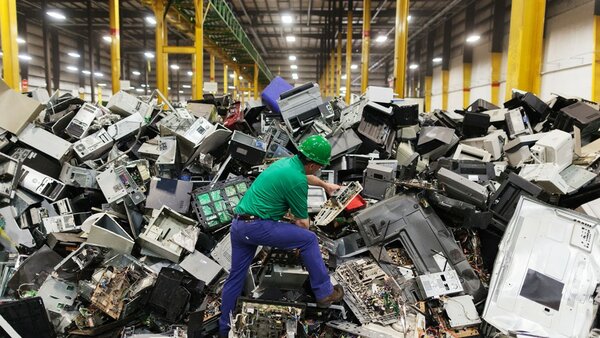| 11. Circular Electronics | |
|---|---|
Offered by | EE and ME |
Available in timeslot | C |
Target student major |
|
| Preferred entrance knowledge / skills | Active interest in sustainability and global issues. Knowledge of either electrical circuits, data science, material science, product design, life-cycle assessment, or circular economy, is a plus. |
Student capacity | 48 |
Group size | 6 |
Contact person | Lorenzo Ceccarelli, l.ceccarelli@tue.nl |
Project description
Waste from Electrical and Electronic Equipment (WEEE) or E-Waste is the fastest growing waste stream worldwide. An estimated 53.6 million metric tons of E-Waste were generated in 2019 alone, and this figure is expected to rise to 74.7 million metric tons by 2030. WEEE is a complex agglomerate of materials, often valuable, and toxic substances. Only about 17.4% of this waste stream is documented to be collected and properly recycled. The rest is discarded in landfills or shipped off to Global South countries, with devastating consequences for communities and ecosystems. Therefore, enabling circularity in the design, usage and disposal of electronics is paramount. In this project, you will be part of a multi-disciplinary team exploring viable solutions to the many aspects of the E-Waste issue. For example, you can choose to include elements of circular design in the early development stages of EEE, increasing the reusability, repairability, and/or recyclability of an appliance. You will receive an introduction to the scale and impacts of the global E-Waste issue, formulate your own research questions, examine, evaluate, and develop evidence-based solutions stemming from a multi-disciplinary research approach. A group of experts and stakeholders from academia, businesses, and NGOs will offer case studies and guidance during the project.
